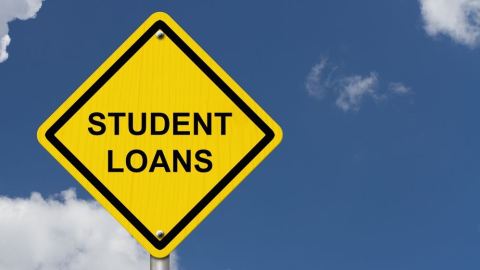College Loan Revolution as 15 Students Refuse to Repay

Fifteen college students are refusing to repay the private and public loans they received to attend Everest College, a for-profit institution that closed its doors, and marred its graduates’ degrees, after running into financial trouble.
A group of US senators has joined the fray, including Elizabeth Warren of Massachusetts, calling on the Department of Education to “immediately discharge” the federal loans given to the students. In addition, the Consumer Protection Financial Bureau is currently negotiating the forgiveness of the students’ private loans.
Depending on their actions, government and banking institutions may set important precedents for students to challenge the legality of their debt, especially if their school failed to provide an essential service — in Everest’s case, teachers stopped showing up for class when the school couldn’t afford to pay them.
As economist Daniel Altman explains his Big Think interview, blanket debt forgiveness would create a moral hazard, incentivizing future students to borrow above their means in hopes of also being forgiven. Instead, he proposes a system of private equity investment as a means to pay for higher education:
“Instead of lending a student money, you actually would buy shares in that student’s future income. You would become an equity investor rather than a debt investor in that student. … I think that to do that we need to structure interesting contracts, we need to do the actuarial basis to figure out how likely the students are to actually make these earnings and then we might have a shot at creating some of these types of devices, these types of securities.”
There is currently more than a trillion dollars of outstanding student loans and the economic consequences are already taking their toll. According to a report by the Federal Reserve Bank of New York, the aggregate level of student debt is keeping young people from leaving their parents’ homes, striking out on their own, and securing personal assets like vehicles and houses.
Read more at The New Yorker.





